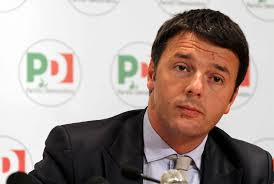
Matteo Renzi’s PD eight months later: where now for the Italian left?
Leading the Italian left has never been an easy task. After the collapse of democratic centralism (i.e. the Leninist practice which obliged the membership to uphold any leader’s decision following an internal discussion), leadership has soon become the Achilles’ heels of the Italian former communists. Party secretaries have been weakened by the rising power of internal factions, used as scape-goats after electoral defeats and blamed for both lack of charisma (Pierluigi Bersani) and excessive protagonism (Massimo D’Alema and especially Matteo Renzi himself).
Moreover, the presidential leadership style of its eternal enemy, Silvio Berlusconi, made the Italian PD (Democratic Party) rather unenthusiastic toward the trends of personalisation and presidentialisation spreading all over Europe. It is not by chance that the Berlusconian model always comes up when discussing Renzi’s personality and politics. Internal opponents and critical observers denounce Renzi’s simplified language and slogans, as well as his post-ideological appeal and charismatic governance. He is even often described as the son of Berlusconi, in the same way that Tony Blair was once called the son of Thatcher.
Albeit controversial, Renzi’s personalized approach seems to have played a key-role in his rise to power. Studies conducted among the delegates at the 2013 Party Conference show that the party’s majority backed him in virtue of his personal characteristics and leadership skills rather than political message. Moreover, whereas the 2012 delegates expected the at-that-time-leader Bersani to promote a process of identity reconstruction and grassroots’ institutionalization, the 2013 Conference asked Renzi for concrete strategies to win the next General Elections (Martocchia Diodati 2014).
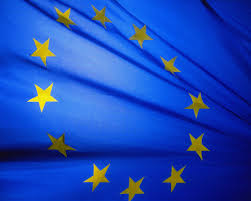
Austerity and Euroscepticism: The End of EU Development Cooperation?
The financial crisis and its aftermath have brought to light the crisis of European integration, more precisely the crisis and potential demise of a certain approach to integration pursued since the early 1950s. The demise of an allegedly inevitable ‘ever closer Union’ pursued primarily in a technocratic way predates the turmoil which started in late 2008. The escalating struggle between European institutions and member states, buttressed by the rise of popular distrust, seems to emerge as one of the biggest challenges to European integration.
dev aidIn development cooperation, an area of ‘shared’ competences between the EU institutions and the member states, it has remained unexplored how economic recession, the sovereign debt crisis, austerity, the struggle in the eurozone and increasing Euroscepticism have affected the relationship between the EU and its member states.
EU aid has undeniably been affected. Significant cuts to bilateral aid budgets due to the consolidation of public finances have reduced member states’ willingness to pool further resources and competences in Brussels. Instead, member states have shown an increasing tendency to operate on their own or in like-minded groups, and focus on inward-looking aid policiesdriven by national interests and priorities.
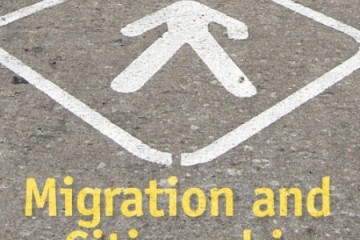
Immigration controls and their effects on citizenship
UKIP’s recent by election victory proves it: the public are extremely worried about immigration and its impacts on labour markets and communities. The pressure is increasing on politicians of all parties to ‘do something’ about immigration.
But this is nothing new. A quick look at immigration laws in the last decade suggests that there has been no shortage of efforts to do something. The most recent Immigration Act 2014 is the fourth major Act in ten years, and the eighth since 1996. During its nine years in office, Labour created eighty-four new immigration offences (Aliverti 2012). These laws have had significant consequences for non-citizens, consequences that have been the subject of interest across a wide range of social science disciplines.
Often forgotten, though, are the consequences for citizens and the idea of citizenship. Our blog series on migration and citizenship hopes to address this omission.
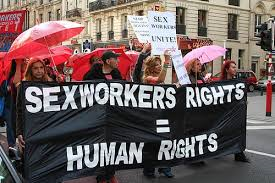
Double standards on sex work in the EU: The ‘Nordic model’ criminalizes everyone.
The European Parliament (EP) recently voted in favor of a resolution that supports the so-called ‘Nordic model’ of sex work. With this decision from the 26th of February, the EP backs a report titled ‘Sexual exploitation and prostitution and its impact on gender equality’ that was proposed by Labour MEP for London Mary Honeyball. The purpose of the report was to send a “strong signal to domestic governments”. The document states that criminalizing the buying of sex while making selling of it exempt from punishment (as is currently the case in Sweden, Iceland and Norway), will decrease the demand for sex work. This is intended to reduce human trafficking for the purpose of sexual exploitation. In the EP’s report, the ‘Nordic Model’ is presented as a policy approach that aims to protect sex workers.
However, the Nordic approach does not improve the situation of sex workers. Instead, it indirectly leads to a criminalization of everyone involved in sex work – obviously including sex workers themselves. Criminalizing sex work increases the vulnerability of sex workers who chose this work because of economic necessity, strict immigration laws or personal preference. Moreover, it does not help those who are victims of human trafficking and have been forced into prostitution either, but instead decreases their visibility. Often portrayed as dominating the sex industry, the scale of the victims of human trafficking represents a minority of sex workers in the UK: less than 10% of female sex workers (2600 out of 30000) working indoors have been trafficked according to the Association of Chief Police Officers’ 2010 report.
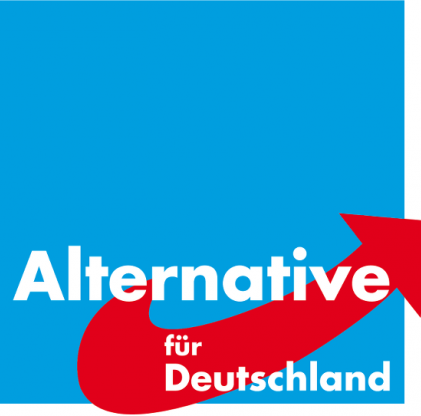
The emergence of Germany’s new right wing
While political parties promoting national liberal, conservative and Euro-sceptic positions have experienced a rise in nearly all EU member states over the past years, Germany appeared to be the last safe-haven left. However, this German exception seems to be over. Since last September the Alternative für Deutschland (Alternative for Germany, AfD) has entered three regional parliaments within two weeks, living up to its success in this year’s European elections.
Supported by around 10 per cent of the voters, the AfD poses a problem to the Christian Democratic Christian Democratic Union (CDU)/Christian Social Union (CSU) and, especially, to the liberal Free Democratic Party (FDP). They have to fear the establishment of a party which may challenge their dominance over Germany’s political right.
While national, liberal and conservative positions are not new to German politics, this space has mainly been covered by the CDU/CSU and FDP. Whereas national liberal and conservative parties had been an inherent part of the German party system during the imperial period and the Weimar Republic, the integration strategy of the CDU/CSU transformed German politics after World War II. By combining liberalism, conservatism and Christian democracy, the CDU/CSU had been successful in leaving only a small niche for potential competitors on the political right. This space was further reduced by the FDP, integrating national and social liberalism within the same party for the first time in German history.
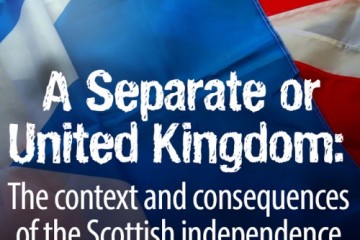
An independent Scotland in the EU
In July 2014, Jean-Claude Juncker was designated as new President of the European Commission. It may be that he will take a more neutral approach to the question of an independent Scotland’s EU membership than that of his predecessor, José Manuel Barroso, who famously stated that it would be: ‘extremely difficult, if not impossible’for an independent Scotland to join the European Union.
The puzzle is why Barroso (and some other EU officials) should appear negative about the prospect of an independent Scotland’s continued EU membership. For while either side of the independence debate may have a strong interest in portraying Scotland’s future in the EU as either plain sailing, or as a via dolorosa, the EU itself should have no such vested interest. I write ‘should’, for in the EU, as in other areas of public life, the fractional and the partisan of politics all too often dominate over matters of principle.
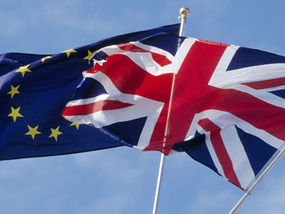
Can the EU Afford to Lose the UK?
In her book Statecraft, published in 2002, Lady Thatcher wrote, “The blunt truth is that the rest of the European Union needs us more than we need them.” We may soon learn how true Maggie’s words are. In the United Kingdom, some of the most prominent businessmen, journalists, and academics are trying to convince Britons that a British exit, or “Brexit,” would be a disaster for their country. In the rest of the EU, a Brexit does not seem to be a sensitive issue; in fact, many continental pundits seemed happy to see Britain leaving the last European Council with a bloody nose after the fight about Jean-Claude Juncker. Will the EU be better off without Great Britain? Or will a Brexit herald the fall of the EU?
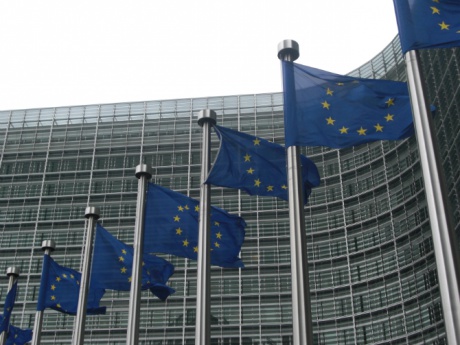
Mending a dysfunctional union
The EU is not an end in itself. Europe needs a vision of functional integration orchestrated and managed not just by states, but also major regions, cities, NGOs and firms.
Elections create winners and losers; the former suffer from hangover due to the excess of champagne; the latter suffer from hangover caused by depression. These last European elections have been a source of hangover for one additional reason: parties determined to curb EU powers came clearly on top in numerous countries. Yet, supporters of the current status-quo were quick to stress that they maintained a comfortable majority within the European Parliament. They sounded like people who had too much champagne. The political map of Europe has changed dramatically thanks to the triumph of the Eurosceptics. National leaders who are running the European project have been given bloody noses by the voters and the newly elected European Parliament has been declared illegitimate by a large segment of the electorate (including those who abstained). Italy seems to defy the common trend, maybe because they found a new young face to lead a firmly pro-European government.









